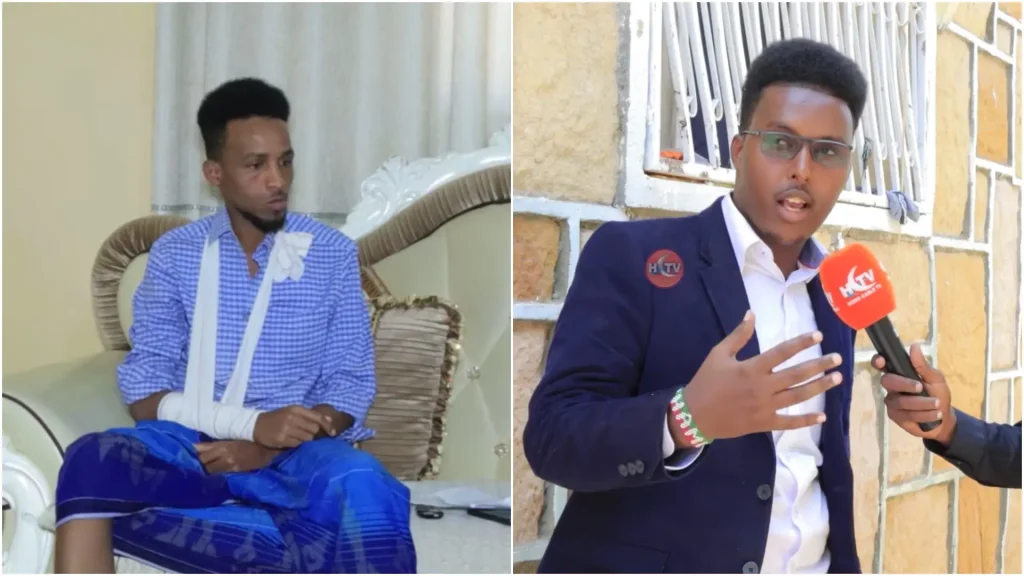On March 18, 2022, freelance journalists Abdisalan Ahmed Awad and Ali Mahdi Jibril survived a violent attack by armed plain-clothed officers from Somaliland’s intelligence unit in Hargeisa. “Two vehicles followed us from the hotel… one vehicle drove past us and immediately blocked our way,” Jibril, the driver, told the Somali Journalists Syndicate (SJS). The assailants fired three bullets, shattered the vehicle’s windows with stones, and beat the journalists with handguns while shouting to “stop their critical coverage” of President Muse Bihi Abdi. Awad fell unconscious and was hospitalized but discharged the next morning, while Jibril escaped to a nearby hotel. “It is very worrying that armed government officials are behaving beyond the law,” said SJS Secretary-General Abdalle Ahmed Mumin.
Detention of TV Reporter in Borame
On March 14, 2022, Somaliland police in Borame, Awdal region, detained Horn Cable TV reporter Imran Hussein Adan after he covered a vox-pop segment on President Bihi’s U.S. visit, which included criticisms of the delegation as “non-inclusive.” “Journalist Imran was taken to the Borame police station for interrogation where he is detained until today,” SJS reported, noting no charges were filed by March 19. The Somaliland Journalists Association (SOLJA) condemned the detention as illegal, stating, “The journalist… was not arrested in accordance with the country’s legal system.” SJS and the Somali Media Association (SOMA) demanded his immediate release.
Rising Threats to Press Freedom
The incidents reflect a broader crackdown on Somaliland’s independent media. “SJS and SOMA are deeply concerned by the increasing attacks, threats, and arrests of independent journalists,” their joint statement declared, calling for an investigation into the Hargeisa attack and Adan’s unconditional release. The Committee to Protect Journalists (CPJ) later reported that Awad was detained again on April 3, allegedly for speaking out about the March 18 attack, and held incommunicado until his release on April 20 without charges. “This shows the intolerance of the Somaliland presidency towards journalists,” Mumin stated, highlighting a pattern of targeting critical voices.
Context of Media Repression
Somaliland’s media faced escalating restrictions in 2022, with 18 journalists arrested in April for covering a Hargeisa prison riot, per CPJ. “The media are attacked to silence reporting on issues of national interest,” Mumin noted. The government’s sensitivity to criticism, particularly regarding Bihi’s U.S. visit and Somaliland’s bid for international recognition, fueled tensions. A 2022 U.S. State Department report noted that Somaliland authorities frequently arrested journalists for “defamation” or covering sensitive topics, with self-censorship becoming common due to fear of reprisals.
Calls for Justice and Reform
SOMA’s Mohamed Osman Makaran urged Somaliland authorities to “honestly investigate the incident and arrest the perpetrators,” expressing relief that Awad and Jibril survived. The lack of accountability, with no arrests reported for the Hargeisa attack by year’s end, underscored ongoing challenges. “Authorities should ensure justice rather than throwing journalists behind bars,” said CPJ’s Muthoki Mumo. As of late 2022, Somaliland’s press freedom remained precarious, with advocates like SJS pushing for legal protections to safeguard journalists and end arbitrary detentions, vital for fostering open discourse in the region.






